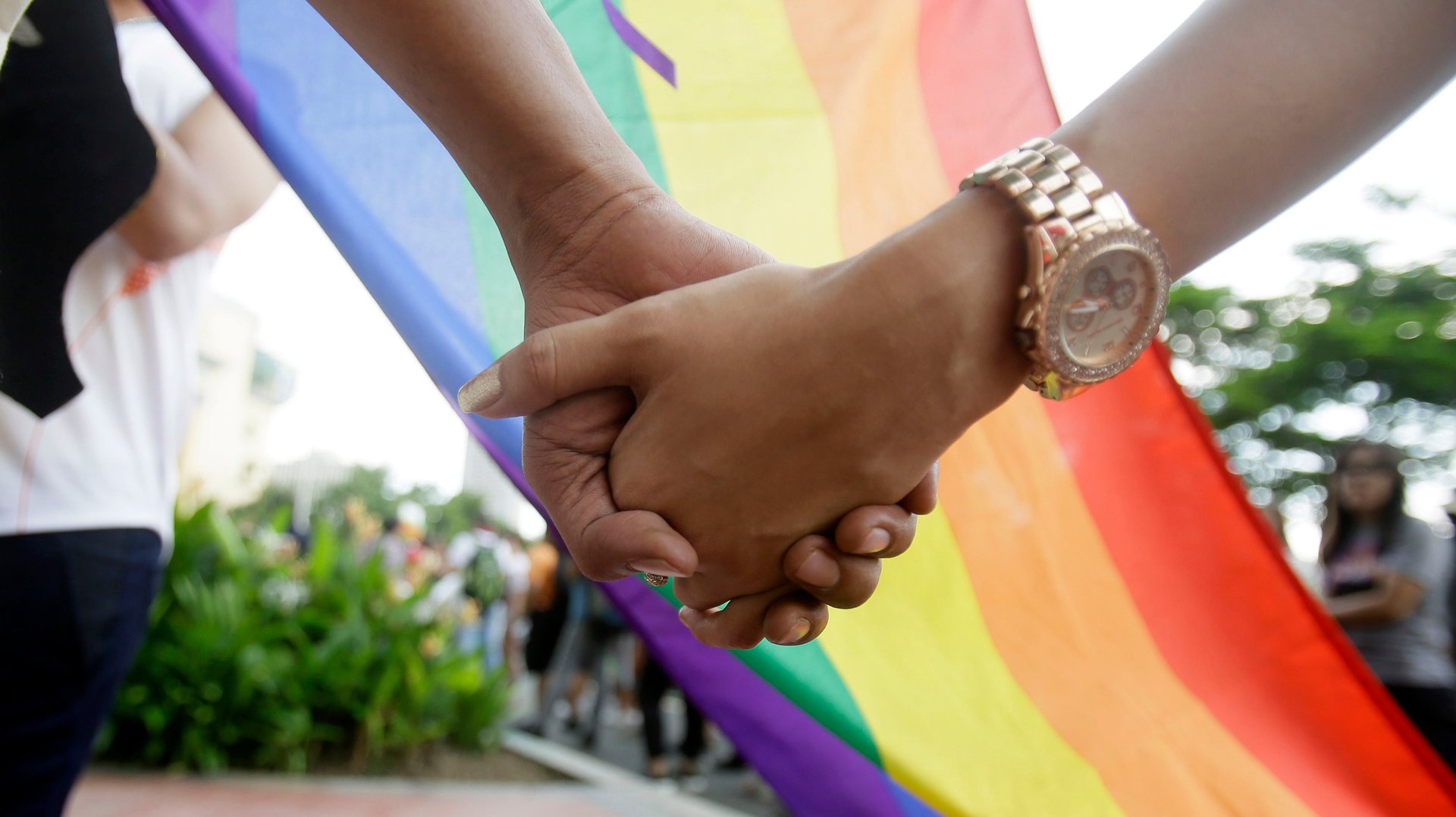John Oliver nails this moment for transgender Americans: “Let’s not get too complacent about how far we’ve come”
There’s been a lot of attention paid to the transgender community lately—Caitlyn Jenner’s highly-publicized coming out will be followed by a TV show about her transition; Amazon’s Transparent won two Golden Globes; Facebook and Google expanded their gender options; Orange is the New Black devoted significant screen time in its third season to transphobic hate crimes committed against Laverne Cox’s character, Sophia.


There’s been a lot of attention paid to the transgender community lately—Caitlyn Jenner’s highly-publicized coming out will be followed by a TV show about her transition; Amazon’s Transparent won two Golden Globes; Facebook and Google expanded their gender options; Orange is the New Black devoted significant screen time in its third season to transphobic hate crimes committed against Laverne Cox’s character, Sophia.
Collectively, these things increase the visibility of the transgender community. But what has actually been achieved?
The Supreme Court legalized gay marriage throughout the US last week, the culmination of more than a decade’s worth of LGBT resources. With this fundamental right achieved (at least legally), the community must turn to battling a long list of wrongs that disproportionately affects transgender Americans, and that are more difficult to quantify: workplace discrimination and harassment, sexual assault, homelessness, suicide, even simply being counted accurately.
As HBO late night host John Oliver said Sunday night, “Let’s not get too complacent about how far we’ve come.”
By one estimate, there are around 700,000 transgender adults in the US. Keep that in mind as you consider the numbers highlighted by Oliver:
There are an estimated 149,800 transgender Americans who have served in the military.
Of 15 substantiated sexual abuse and assault cases in immigration detention facilities from October 2009 through March 2013, “three involved transgender victims,” according to a US Government Accountability Office report. (The report also notes that the data are incomplete—there were 215 sexual assault and abuse allegations during that time). That’s despite the fact that only about one in 500 detainees is transgender, Fusion notes.
The stats—on sexual violence, on hate crimes, on workplace harassment—go on and on.
Gains in transgender visibility are good, especially as they help create a supportive environment for transgender Americans to come out in. But visibility isn’t nearly enough. Oliver pointed to an example of a transgender Arizona student who spoke to his state legislature, urging them to allow him to use the bathroom of his choice. The lawmakers told him how proud they were of him, how they admired his eloquence, that they loved him. And then? “All three of those lawmakers voted to advance the bill to force him into bathrooms where he’s bullied,” Oliver said.
“That dynamic of praising a transgender person’s courage and then not actually supporting them speaks to the fact that we are weirdly comfortable celebrating transgender people while simultaneously dehumanizing them at the DMV, pinning awards to them as we drum them out of the military, and constantly quizzing them about their genitals,” he noted.
Oliver didn’t actually have a grand solution to the problem, as indicated by the lack of a satisfying end to his segment—there was no (imagined) flying to Russia to meet Edward Snowden, or bringing down of the FCC website. While less flashy, perhaps, Oliver’s point was clear: The next decade’s worth of changes will happen in small increments, inside the community and outside of it. But that won’t make them any less vital.